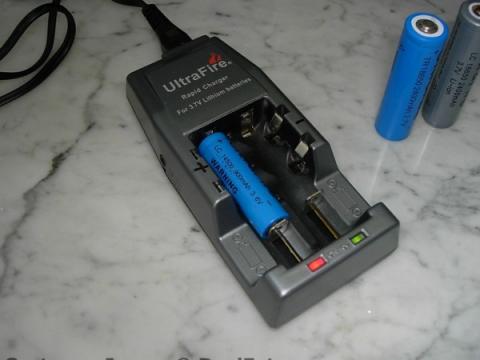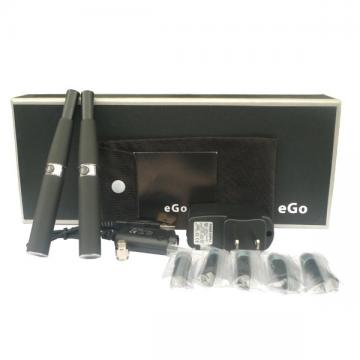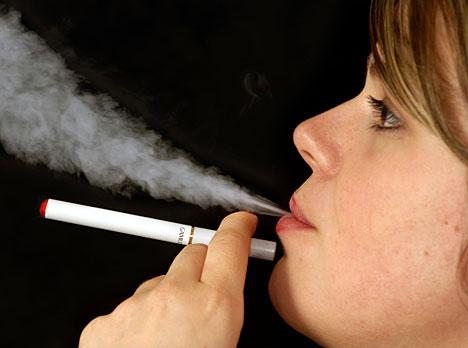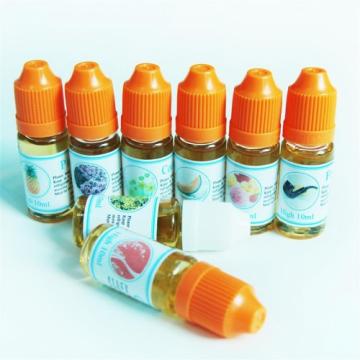-
Posts
8,840 -
Joined
-
Last visited
-
Days Won
216
Everything posted by Christopher
-
How to fill your Boge Soft Top Cartomizer http://www.youtube.com/watch?v=CeaqRV4PmzA
-
Here ya go Some get me to Korea NOW http://www.youtube.com/watch?v=bJgRWlyllcU
-
In general, the higher the voltage the hotter the vapor will be. The lower the voltage, the colder the vapor will be respectively. The eGo C will work just like your eGo T honestly except imagine the twist part is a boost button. The higher you go, the more vapor you'll get and the hotter it'll be. Like turning a toaster on over drive lol While I'm using an eGo T at the moment, normally I enjoy a Regular Resistance Boge Cartomizer at 4.2 volts. It's the sweet spot for me personally. Not to hot not to cold.
-
That doesn't sound good. Have you tried using another atomizer? That would at least help narrow things down a bit. I would suggest trying another atty and see if you can replicate the issue without actually vaping from the device for your own safety.
-
I'm embarrassed to say... I was completely unaware of this.
-

Switched To Vaping Yesterday. Saying Hello To Everyone! :d
Christopher replied to vinceong2009's topic in New Vapers Forum
Welcome -
Looks like the built in CSFR module is probably set a little to high. Sometimes a person browsing via mobile can cause it to go off. (Especially in buggy modules) Either way, glad to see your site is up and running, best of luck!
-
eGo batteries will take the 510 atomizer Just an FYI, the eGo, eGo T, eGo C and 510 all use the same fitting. So you can interchange. Also here is the DD video: (They can all be found in this sub forum)
-

Are Bloog, Volt, Nexcig, Halo Etc All The Same Units?
Christopher replied to redddog's topic in New Vapers Forum
^ Yes -

Are Electronic Cigarettes Safe?
Christopher replied to Christopher's topic in General Vaping Discussion
You need to make that decision on you're own given the information provided but if I had to give an answer I'd say not to vape next to her. I don't think it's much of an issue out doors but definitely indoors. The bottom line is, most studies show that e cigarettes are safer than cigarettes....safer is the key word here. e Cigarettes are still fairly new and while we "know" they are much much safer we can't say for sure that they are safe. Time and more studies will tell. At the moment the risk isn't worth it. At that age children's lungs are still developing and they don't have the same kind of tolerance we do. (Especially as former smokers) I also do not vape around my children. (I have a 2 1/2 year old and an 10 month old) -

Catch Theecigstop.com Review Of V4L's (Vapor4Life) Omg Mod
Christopher replied to TheStopDoc's topic in e Cigarette Reviews
Moving to review area... -
Sorry to hear that. In my experience this has been the primary reason why some go back to smoking. They don't quite grasp the concept. But, more often that not though, they'll come back around for a second try. Especially after being sick or waking up to a really bad coughing spell. Then, they're usually more determined than ever to finally switch.
-

Help! Can Passthroughs Be Fixed?
Christopher replied to Gunny's topic in Troubleshooting & Technical Issues
Like Jeff said 9/10's out of ten a wire came loose. Pop off the end cap and you can usually solder it back on. You could also use some sticky tack if you feel like getting Macgyver -
So you’ve got your KR808 and wait a minute! The top doesn’t come off? How the heck do I fill this thing? Your not alone. The KR808 wasn’t really designed to be filled, but users asked suppliers for empty cartomizers so they could add their own flavors. With so many flavors on the market, understandably so! Here’s a quick video from an ecig user that shows you how to easily fill your KR808 model. Actually, this method works quite well even for cartomizers with a soft top. It’s faster with much less fuss. Did this help you?
-
Credit to: ECF Author: Kurt (ECF Member) As a professional chemist, I would recommend storing long term in glass. Nic in high concentration will slowly dissolve plastic, and PG will leach plasticizers from plastic. VG might too. Sun’s fridge issues were with flavored juices stored six months, some of which were not even opened. I believe they were early Johnson Creek. The culprit was probably water in the JC recipe. I think decomp would have happened anyway, regardless. I do not think it was necessarily the fridge itself. A sealed glass bottle of unflavored nic juice will not allow water in. The only reactant here is O2, which if there is little head room is negligible. O2 is very slightly soluble in PG or VG, and will be present in trace quantities in the solution no matter what you do, but it is not enough to make any appreciable change in 100 mg juice, even if it all reacts. I use glass bottles from specialtybottles.com for storage of my unflavored 35-100 mg VG nic juice. The ones with eurodropper inserts, since I use them for syringe dispensing. Just stick an 18 gauge blunt needle through the center hole. With these inserts, accidental spill, which is a DISASTER with 100 mg juice, is eliminated. I use 50 mL bottles (although given how fast I go through them, I should have used 30 mL), fill them almost to the rim, put in the insert and screw on the cap. I store them in the freezer. As long as they are brought to room temp before opening them, the liquid will not absorb much water from the air. I pull out one bottle at a time for juice making. I just pulled out a 100 mg VG bottle stored since January, and it has not even discolored compared to the original very slightly yellow, as in VERY slightly yellow. In my freezer, PG and VG do not freeze (I have some DV PG juice stored too), nor do they expand. VG becomes VERY thick, like rubber cement at the temp of my freezer. I have not tested for nic content, but the juices I make now are in my opinion no less potent than when I got the juice fresh. Cool, dark, and dry is appropriate for a bottle opened and being actively used for DIY. Sealed is sealed, and extreme cold almost eliminates the kinetics of any O2 reactions and mold or bacteria growth, which is also almost eliminated by nic itself, PG or VG. I keep many 50 mL bottles in a sealed container in the freezer (actually a pet food container). From what I know about these chemicals, I expect the juice to last certainly much much longer than 24 months, and probably many years. This long term storage is for unflavored, and undiluted nic-juice only. I do not store flavored DIYs this way. I make them in relatively small quantities and vape them up before making more. Flavors are probably the most unstable part of e-juice, and the presence of water in them will hasten their decomposition into nasty tasting products. Fridge cold does not really change this a lot, it is dependent on the flavor itself. Fruits are especially prone, since they are esters that tend to hydrolyze to organic acids (sour, vinegar, vomit taste) and organic alcohols (wet-dog, funky taste). Even unfrozen, liquid PG nic-juice in the freezer will still have slower reaction kinetics than room temperature liquid. Increased viscosity, such as VG nic-juice, will further lower kinetics of reactions of nic with O2: the molecules do not move around much to find each other. But all reactions slow down with cold regardless of viscosity changes. The fact that neither of these liquids freeze solid in the freezer is good. Solid is chrystalline, and is generally not the same composition as the liquid, in other words, freezing solid will promote separations…although after it melts to room temp, it can be mixed back to original uniform composition. Is freezer storage overkill? Maybe. As I said, sealed is sealed, and the total reactions possible if its sealed are low. But I get a singular pleasure from taking one of those 50 mL bottles out, knowing it will be as fresh and potent as the day I bought it, even years down the line. Based on my decades of chemical knowledge, I do honestly think this is the best option for long-term unflavored nic-juice storage.
-
It would seem one of the major frustrations of new users can all be boiled down to one thing… How to correctly pull vapor from an e cigarette. Unlike a cigarette, it’s advised that you take long, slow drags on each and every owners manual, but most don’t know just how long or how slow they’re supposed to be doing it. Can I get an amen Noobies? OK Moving on… Once newbies ‘get it’, their other e cigarette issues are secondary. There’s a lot of posts where forum members advise new users to use the proper technique, but it’s all scattered throughout the forum. So, here you go..I’m doing a ‘guide’ based on using a MANUAL 510, which is one of most popular first models. (This is applicable to most e cigarettes) Steps 1. Press the button for around 1-2 seconds BEFORE you start to inhale 2. Without letting go of the button, draw on the ecig slowly. Your inhalation should be at least FIVE seconds long guys! It’s just THAT easy! If you’re frustrated because you don’t feel like you’re getting anything, that’s because you’re probably smoking it like an analog, short, quick puffs. It’s what we’re USED to doing, but this is NOT a cigarette. While ordering a manual PV is strongly recommended for everyone, if you have an automatic version, (where you just ‘drag’ on it to get it started), then you use the same method, you just don’t have to hit any buttons beforehand, so take a ‘primer puff’ and you’re good to go! Bottom line is, take a LONG drag…at least 5 seconds in length Credit: domino38 (ECF Member) Edit By: Christopher
-

Fixing The Dreaded Battery That Won’T Charge
Christopher posted a topic in General Vaping Discussion
It’s happened to all of us at some point. You pull the dead battery out of your favorite mod, you place it into your charger and the light turns green. Wait, green light? WTH it’s dead! Why is the green light on? Stupid Chinese crap charger, right? No, it’s probably not the charger. It’s the protection circuit in the battery. Some of these batteries are pricey and replacing them can take a toll on your wallet. Here’s what probably happened… Most good batteries come with built in protection. When the battery is drained too low the safety circuit kicks in to protect the battery and more so you, from any damage. Is there a way to fix the battery? Yes, sometimes. The the following trick doesn’t always work but has saved me countless headaches. 1. Grab another battery of equal size and voltage (if you don’t have another, grab a 9 volt battery) 2. Connect the positive and negative ends of both batteries (The second battery must be fully charged in order to repair the defective battery) 3. Hold for about 3-4 seconds. NOTE: Positive to Positive, Negative to Negative! Essentially you’re “jumping” the battery. It should cause the protection circuit to “reset”. Place your defective battery back on the charger and wallah, red light I hope this helps some of you save a couple bucks and drive a little extra life out of those mod batteries. -Chris -
Author: DC2 Source: Here (ECF) Buying and Using an Electronic Cigarette: A Primer The first thing to know is that everyone is different. Everyone has different reasons for smoking cigarettes. Everyone gets different things from the smoking experience. Everyone has different needs and wants. And everyone has different tastes The second thing to know is that there is no perfect electronic cigarette. They all have pluses and minuses, depending on your needs and wants. What one person considers a plus may be considered a minus by another. The third thing you should know is that you will probably change your mind. There is a very good chance you will stop caring how much it looks like a cigarette. There is a very good chance you will stop caring if it tastes like your old brand of cigarette. And of course, there is every chance that you may not change your mind as well. The last thing you should know is that there is a learning curve. This is not going to be as simple as picking up a cigarette and a lighter. Parts will eventually die on you, so you’ll need backups. There are issues to overcome, and things to learn. But in the end, it is well worth it to make the effort. Prefilled cartridges versus refilling your own Cartridges are basically made up of a mouthpiece and filler material that holds the liquid. Using cartridges prefilled with liquid can become relatively expensive. Also, this limits the flavors and strengths of juice you can use to what they come filled with. Almost everyone quickly switches to refilling their own cartridges for the above reasons. This is one reason your first order should always include at least 10ml of juice. Cartridges can be refilled a number of times, but not indefinitely. The filler material contained within the cartridge stops working quite as well after awhile. Many people simply clean the filler and keep using them even longer. Regardless, you will eventually need new filler, but can continue using the same mouthpiece. One option is to buy your own cartridge filler, which is very inexpensive. Another option is to buy blank cartridges that have filler but no juice. Manual versus Automatic batteries Manual batteries require you to push a button to activate the battery. Pushing a button will reduce the degree of duplicating the cigarette smoking experience. However, most people say it becomes second nature in less than a day. Automatic batteries are activated by the act of inhaling. Some automatic batteries are activiated by the sound of inhaling, and some by the suction. Therefore, they may also be activated by such things as loud noise, wind, or car air conditioners. Automatic batteries allow you to use your electronic cigarette hands free. However, electronic cigarettes are too heavy for some people to hold comfortably in their mouth. Automatic batteries have a cutoff which causes them to stop after a certain number of seconds. This is the source of much frustration for most users, and detracts from their enjoyment. It can lead to various issues such as juice in the mouth or poor vapor production. With practice, certain techniques may be employed to help overcome these issues to some extent. Manual batteries avoid the above issues by providing complete control over the atomizer. The vast majority prefer the manual battery, but there are some that do prefer the automatics. NOTE: Please see the various replies below for more information on battery options. Throat Hit and Vapor Production and Flavor Most people want a good throat hit, however some people want less throat hit. But everyone agrees for the most part that more vapor is a good thing. In general, throat hit and vapor production go hand in hand. The hotter you can get the atomizer the more vapor and throat hit you should get. But this may also cause the juice to lose some flavor as well. And it will definitely cause you to use more juice. Manual batteries will allow you to get the atomizer hotter for longer. This is another important factor in the reason most people prefer manual batteries. Also, vapor production and throat hit can be greatly influenced by the juice you use. And at this point, vapor production and throat hit do not always go hand in hand. Nicotine strength is often cited as having a very big effect on throat hit. And different flavors from the same company often produce more or less throat hit and/or vapor. Mods Mods generally provide much longer battery life. They use larger batteries that are more common, easier to get, and much cheaper. For this reason they look far less like a cigarette. Many also allow for higher voltage which will also allow you to get the atomizer hotter. Many users eventually move to a mod for the above reasons. Nicotine Strength There does not seem to be a clear pattern as to what strength nicotine you might need. Some people find they need higher strength than they thought. Some find that they need lower strength. The general rule of thumb is get something maybe a bit higher if unsure. You can always get some that is lower to cut it back with. And you can keep some around for spiking to a higher strength if a bad craving hits you. PG versus VG juices As far as differences go, this is what I have gathered from reading things here and there. 1) VG is thicker (more viscous) 2) VG vaporizes at a lower temperature 3) VG produces better vapor 4) VG is somewhat sweeter Because of the above… 1) VG does not wick quite as well 2) VG may gunk up your atomizer more quickly 3) VG produces a somewhat cooler vapor which may reduce throat hit Dry atomizers, flooded atomizers, and wicking Basically, you want to keep your atomizer happy with plenty of juice, but not too much as to flood it. A good sign that it’s flooded is that it gets a little harder to draw on and you get little or no vapor. Flooding it, however, won’t hurt it at all, and you can just blow out the extra juice. Letting it get too dry, on the other hand, is not good for the atomizer supposedly. But regardless of whether it is bad for the atomizer or not, you still don’t want to do it. You can tell it is too dry when it starts to taste like crap. A nasty sort of burnt plastic type of taste. One reason it might get too dry is if you burn through the juice faster than it can wick up more. That is why people experiment with different kinds of filler materials to use in their cartridges. If you take only a drag or two every now and then, you should be fine. But if you use these like a cigarette, the wicking process will have trouble keeping up. There are ways to deal with this, and people have different methods that work better for them. And of course, when the cartridge is running low on juice, it needs topping off for this reason.
-
So just what is an eCig? An electronic cigarette, or e-cigarette, is an electrical device that simulates the act of tobacco smoking by producing an inhaled mist bearing the physical sensation, appearance, and often the flavor and nicotine content of inhaled tobacco smoke; though without its odor, and intended to omit its health risks. The device uses heat (or in some cases, ultrasonics) to vaporize a propylene glycol- or glycerin-based liquid solution into an aerosol mist, similar to the way a nebulizer or humidifier vaporizes solutions for inhalation. Most electronic cigarettes are portable, self-contained cylindrical devices the size of a ballpoint pen or magic marker; though sizes vary, mainly due to differing battery capacities. Many electronic cigarettes are designed to resemble actual cigarettes or cigars, or even pipes. Most are also reusable, with replaceable and refillable parts, but some models are disposable. The primary stated use of the electronic cigarette is an alternative to tobacco smoking, or a smoking cessation device, as it attempts to deliver the experience of smoking without, or with greatly reduced, adverse health effects usually associated with tobacco smoke. Nevertheless, concerns have been raised that use of the device still carries health risks, and that it could appeal to non-smokers, especially children, due to its novelty, flavorings, and possibly overstated claims of safety. The possible benefits or adverse effects of electronic cigarette use are a subject of disagreement among different health organizations and researchers. Controlled studies of electronic cigarettes are scarce due to their relatively recent invention and subsequent rapid growth in popularity. Laws governing the use and sale of electronic cigarettes, as well as the accompanying liquid solutions, currently vary widely, with pending legislation and ongoing debate in many regions. The modern electronic cigarette’s design was devised by Chinese pharmacist Hon Lik in 2003, though the earliest known description of its concept was authored by Herbert A. Gilbert in 1963. Electronic cigarettes all share three essential components: A “cartridge” that serves as a mouthpiece and usually doubles as a small reservoir holding the liquid that is to be vaporized. An “atomizer” that serves as the heating element responsible for vaporizing the liquid. A power supply, which in portable models is a battery. Other electronic components necessary for operation are housed within the power unit. A “cartomizer” option is available for most models that replaces the separate cartridge and atomizer components with a single integrated piece. This option is disposable, as opposed to standalone atomizers which are reusable and comparatively expensive. Most reusable electronic cigarette components are manufactured according to some standard for their threaded (screw-on) fittings, making them interchangeable. Current (June 2011) dominating attachment standards include the 510 and 808D. The majority of components are manufactured to fit these models.
-
What is e liquid? (e Cigarette) Liquids used to produce vapor in electronic cigarettes are widely sold both as separate bottled products, for use with refillable cartridges, and as pre-filled disposable cartridges. Bottled liquid is sold under a variety of names, including “e-liquid”, “e-juice”, and “nicotine solution”. Contents of liquid solutions vary, but their common aspects include water and flavorings in a propylene glycol or glycerin base. Nicotine is also included in solutions intended to fulfill a nicotine replacement role. Flavors Hundreds of different flavor varieties are available. Some attempt to resemble traditional cigarette types, such as regular tobacco and menthol, and some even claim to mimic specific cigarette brands, such as Marlboro or Camel. A wide variety of food flavors are also sold, from the traditional (vanilla, coffee, cola) to the more exotic (strawberry daiquiri, Boston cream pie). Nicotine Liquid solutions containing nicotine are available in differing nicotine concentrations to suit user preference. Dosing nomenclatures are not standardized and vary by manufacturer, but tend towards the following rough figures: Liquids said to contain “low” doses of nicotine tend to correspond to a nicotine concentration of 6–8 mg/ml (milligrams of nicotine per milliliter of liquid). “Midrange” or “medium” doses tend to correspond to a nicotine concentration of 10–14 mg/ml. “High” doses tend to correspond to a nicotine concentration of 16–18 mg/ml. “Extra-high” doses tend to correspond to a nicotine concentration of 24–36 mg/ml. Actual numerical nicotine concentration ratings are usually printed on liquid containers or cartridge packaging. Often, the standard notation “mg/ml” is shortened to a simple “mg”.[4] Primary Base Flavors and nicotine are dissolved in hygroscopic components, which turn the water in the solution into a smoke-like vapor when heated. Commonly used hygroscopic components include propylene glycol, vegetable glycerin, and polyethylene glycol 400 – often sold under the abbreviations PG, VG, and PEG 400, respectively. (Vapor Talk does not recommend the use of liquid containing PEG 400. We recommend standard PG or VG e liquids) Safety of liquid bases All three liquid bases are common food additives used in a variety of pharmaceutical formulations. Propylene glycol, the current dominating liquid base, has been utilized in asthma inhalers and nebulizers since the 1950s, and because of its water-retaining properties, is the compound of choice for delivering atomized medication. The U.S. Food and Drug Administration (FDA) includes propylene glycol on its list of substances Generally Recognized as Safe (GRAS), and it meets the requirements of acceptable compounds within Title 21 of the Code of Federal Regulations.







